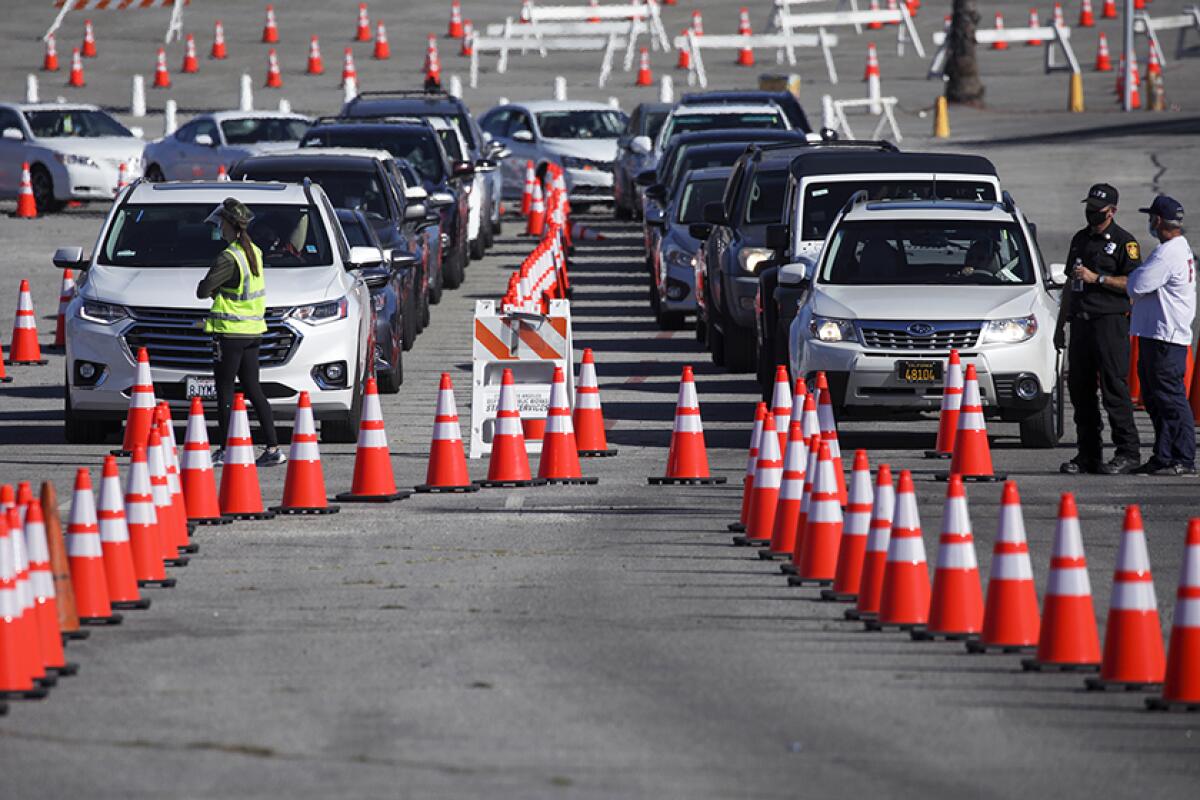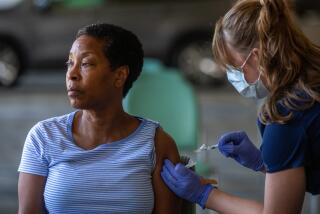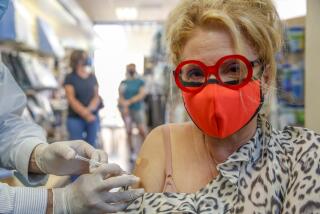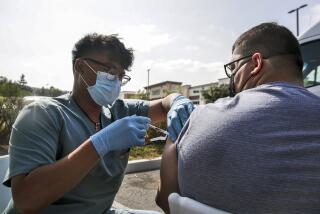New COVID-19 vaccine sites will focus on elderly without transportation access

The two mass vaccination sites announced by the federal government Wednesday, including one at Cal State Los Angeles, will provide COVID-19 vaccines to vulnerable communities and people with limited access to transportation — a move that would try to address problems for seniors who have struggled to get to sites around the country.
The opening of the sites in California — one on the Eastside of Los Angeles, the other at the Oakland Coliseum — reflect the federal government’s growing involvement in the distribution of the vaccine. The sites, scheduled to open Feb. 16, will be staffed mostly by federal workers, including officials from the Federal Emergency Management Agency and the Department of Health and Human Services.
“These sites in California are just the beginning,” said Jeff Zients, who leads President Biden’s task force on COVID-19. “The Biden administration is planning to establish roughly 100 sites across the country.”
Zients said the initiative in California will help “two of the communities most hard hit by this pandemic.”
The center at Cal State Los Angeles will include a drive-through site in addition to a walk-up facility near the school’s transit hub, where buses and trains stop. Additionally, mobile units will be deployed into the nearby communities, Cal State L.A. provost and Executive Vice President José A. Gómez said Wednesday.
“Folks that don’t have transportation can come to Cal State L.A. and, using public transportation, can get their vaccine,” Gómez said.
Officials are also working with L.A. County Metropolitan Transportation Authority, Uber and Lyft to secure vouchers for vulnerable residents who don’t have easy access to transit.
The site will be open seven days a week for three to six months — or longer, depending on need — and is expected to vaccinate 6,000 people a day. That is also the plan at the Oakland Coliseum, which will also be linked to a mobile clinic.
The state’s current eligibility guidance includes healthcare workers, long-term care facility staff and residents and individuals 65 and older. Educators and those who work in food and emergency services are next in the priority line.
Last week, Gov. Gavin Newsom said that the state would move to an age-based vaccine eligibility plan. But details for what that would mean in practice and a how high-risk and disabled individuals would be factored into the plan have not yet been released.
The vaccination centers are part of the Biden administration’s effort to ramp up inoculations as new coronavirus variants emerge. California has struggled to deliver vaccines, and its initial efforts have been marred by confusion and snarls in the supply chain.
Newsom said the new vaccination sites would help “safely, swiftly and equitably vaccinate all Californians.”
“In the fight against COVID-19, partnership is key, especially when it comes to reaching Californians in underserved areas,” Newsom said in a statement. “These new sites will help us get available supply to some of the California communities most in need.”
California has administered more than 3.5 million vaccine doses, according to federal statistics. With 8,969 out of 100,000 people receiving a shot, the state’s rate of progress ranks ahead of Texas but behind New York and Florida.
Newsom said Wednesday that the state is receiving roughly 1.06 million more vaccine doses this week, but it’s unclear how supply will be distributed across the state. State officials have previously said that the state was receiving 300,000 to 500,000 doses each week — an allocation that has fallen short of county and state vaccine distribution goals.
Los Angeles Mayor Eric Garcetti said the city will began dispatching a mobile vaccination clinic on Tuesday to South Los Angeles neighborhoods in the city’s 8th council district. Garcetti said the area was home to many low-income residents, essential workers and multigenerational families — all demographics that have been infected at disproportionate rates — as well as elderly people who lack the transportation needed to get to a drive-up vaccination site.
The city will send another mobile vaccination clinic next week to neighborhoods in the city’s 9th council district, which also encompasses parts of South Los Angeles, Garcetti said. The approach underscores the city’s aim to “bring the lens of equity” to how it distributes its stockpiles of the vaccine, he said.
Times staff photographer Irfan Khan and staff writer Matthew Ormseth contributed to this report.
More to Read
Start your day right
Sign up for Essential California for news, features and recommendations from the L.A. Times and beyond in your inbox six days a week.
You may occasionally receive promotional content from the Los Angeles Times.








